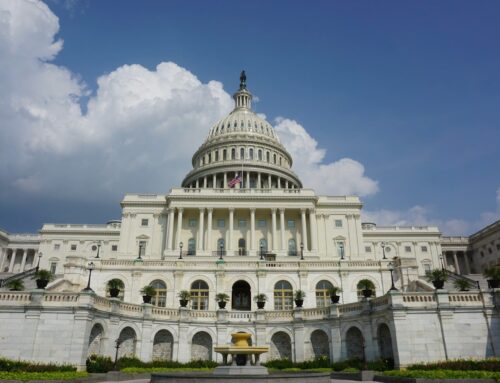The new budget deal puts the final nail in the 2011 Budget Control Act’s coffin. Presumably this is the last in a series of a budget deals that squandered any deficit reduction projected by that law. Each time lawmakers were faced with caps to control their spending urges, they boosted the caps without any offsets or partial fig leaf offsets at best.
So yes, the Bipartisan Budget Act of 2019 (BBA 2019) is a compromise, in the sense that the White House got some of what it wanted and Democratic leadership in the House got some of what they wanted. But it was additive, rather than looking for the most efficient way to meet goals. Defense and non-defense categories of spending get major boosts, and the Pentagon continues to get the tens of billions of dollars in extra off-budget Overseas Contingency Account (OCO) funding.
That means policymakers are dodging the hard policy decisions while adding hundreds of billions of dollars in deficit spending in the short-term and setting the stage for more than a trillion dollars added to the debt in coming years. That is on top of the nearly $2 trillion the last Congress added to the debt by passing a deficit-financed tax cut and another budget cap boost that wasn’t offset.
The so-called offsets in this bill are nothing more than a weak attempt to hide the fact that the agreement is yet another exercise in promising to reduce deficits later in exchange for increasing spending today. From the highly speculative raising of customs duties on commerce happening nine years from now, to the cynical ploy of claiming to set up sequestration in 2027 and 2028 to avoid it today, these revenues and savings are unlikely to materialize.
This budget deal and its fictitious offsets are really the Art Of The Steal from future generations.
I won’t ignore the critical delay of the impending debt limit. Of course, it’s a good thing to put off the walk up to the debt ceiling – we should never play chicken with the country’s full faith and credit. The BBA 2019 just sets the top line spending level for fiscal years 2020 and 2021, but Congress still needs to work out the nitty-gritty details of the dozen annual spending bills that fund government. The new fiscal year starts October 1st and at this point the House has passed ten of the bills and the Senate precisely zero. That means Continuing Resolutions funding at least part of government are in our future and the specter of shutdowns remain.










Get Social